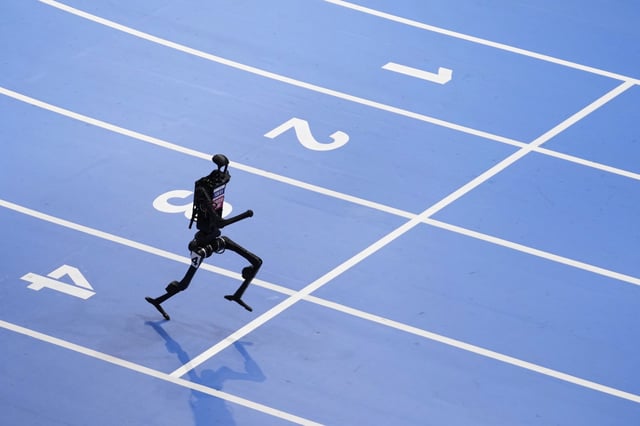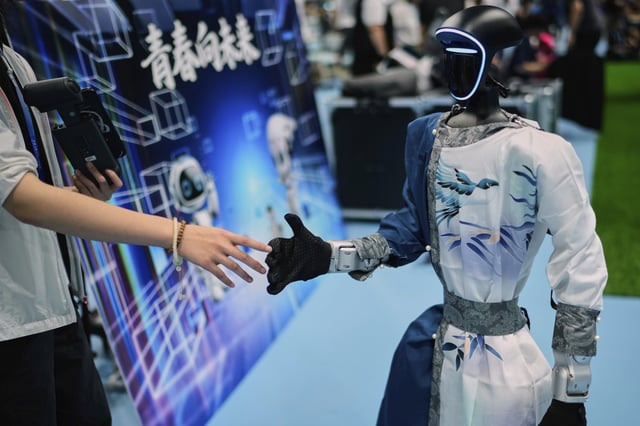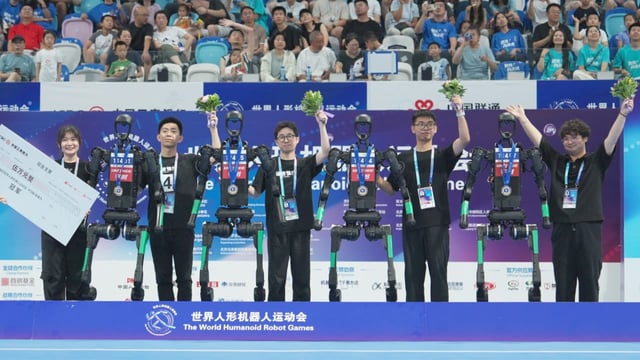Overview
- More than 500 humanoid robots from 280 teams across 16 countries competed in events ranging from sprint races and boxing to soccer, table tennis and practical tasks like medicine sorting.
- Unitree secured multiple gold medals in dash events, boasting a robot top speed of 4.78 m/s and a 100-meter time of 33.71 seconds, while Tsinghua University’s Hephaestus squad claimed victory in the 5-a-side football final.
- Frequent falls, thermal and battery failures required on-site repairs and technician interventions, underscoring enduring challenges in balance, power management and full autonomy.
- Organizers and participants framed the Games as a large-scale stress test following earlier testbeds in marathon running, kickboxing and autonomous soccer, feeding data into China’s state-backed robotics development roadmap.
- Cheering crowds at the National Speed Skating Oval demonstrated growing public engagement and China’s push to showcase AI-powered robotics as a soft-power and innovation initiative.


